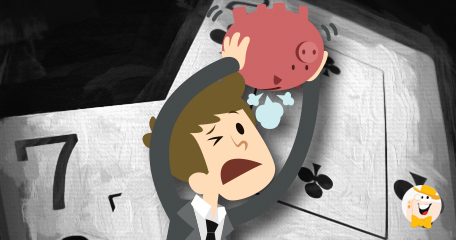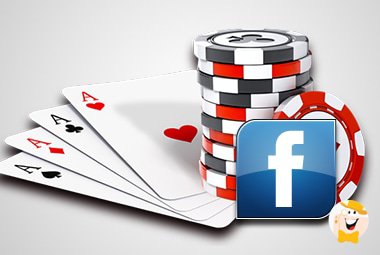
For those of you who haven’t heard, there is a growing trend emerging in the world of gambling throughout the last few years and that is spending money without the prospect of winning money. While the games themselves may not have a House Edge of 100% and an RTP of 0%, there is no hope of the player recovering any of the money invested into the games.
Believe it or not, we’re not talking about rogue non-paying online casinos here, the majority of the websites that we’re talking about are entirely legal and are fully in compliance with any laws in the jurisdictions in which they operate.
Gamblification is connected to another term that you guys out there might be more familiar with, “Social Gaming.”
Make no mistake that those two things are not the same. “Social Gaming,’ can refer to any kind of gaming which is done via apps or social media platforms provided it invokes some kind of P2P or PVP (player-to-player or player-versus-player) element. Gamblification, instead, is a term coined strictly to refer to Social Games that have a gambling element attached to them.
While an individual may occasionally have to be of legal gambling age to play a game that invokes the concept of gamblification, that is usually not the case.
Games For Which One Must Be Legal Gambling Age or Age of Majority:
The difference between games in which one must be of legal gambling age and games in which age doesn’t matter as much is whether or not items of value are potentially won by way of purchasing virtual currency (i.e. chips or credits) for the games in question. Sites do not run afoul of any underage gambling laws if it is impossible to win prizes (other than more virtual currency) by way of the gamblification activity.

However, there are some sites/apps for which one must be of legal age to participate. For these games, the in-game currency or something that stems from winning using the in-game currency generally has to be redeemable for something.
One example of such an app is the MyVegas app available both on Facebook and on most mobile devices. The game offers a wheel upon which a player may spin for free chips daily and also provides the ability to collect free chips periodically. However, the game also offers the ability for the player to directly buy chips without waiting for the free chips to pop up.
In the case of MyVegas, as a player bets more of the virtual chips (either by leveling up or by the very act of betting) the player will win gold coins. The gold coins can then be used to purchase comps at several MGM properties, and at other affiliated locations, across the United States.
In the case of MyVegas, a player must be 18 years old to play and must be 21 to redeem most (if not all) rewards. The majority of the rewards are rewards that are offered through MGM properties and, to redeem those, the player in question must have an MLife Rewards account. To have an MLife Rewards account, the player in question must be 21 years old.
However, it is still possible to play MyVegas even if an individual (due to age) does not qualify for an MLIfe Rewards account. Playing MyVegas in this way would effectively cause MyVegas to more closely resemble other games that invoke gamblification in the sense that the players are playing without the ability to win anything of real value. In the case of MyVegas, at least, a player under the age of 21 could at least hoard the gold coins (termed Loyalty Points) for use at a future date after turning 21.
Most games have a minimum age requirement (to keep within state laws) with little prospect of any virtual currency or items to have any real world value. Another example of such a site is VideoPoker.com which has a “Players Club,” at which points are exchanged for items of monetary value. By only permitting players who are 21+, Videopoker.com plays it extremely safe (and is arguably an incredibly responsible site) because you cannot even buy virtual currency there. The only possible purchases that can be made (involving membership) at VideoPoker.com are Silver and Gold memberships which enable different features.
The majority of sites that offer any item for playing, or by winning that is going to be of any real world value potentially will go to great lengths to ensure that individuals have attained the age of majority. In the United States, that means that the person has reached eighteen years of age. Many of the more responsible sites that offer gambling-themed games will ensure that an individual has attained 21 years of age, which is the legal age to gamble in any state that has legalized and regulated commercial gambling.

Games for Which One May Be Any Age:
Several social media games invoke gamblification for which one does not have to be the age of majority to play. In fact, it is possible that a majority of games fall into this category, so for this writing, we are going to focus on just one. The example we will use for these purposes is Zynga Poker.
With Zynga Poker, the Terms of Service state that the player must be at least thirteen years of age to play. Furthermore, Zynga Poker (and most other sites) attempt to absolve themselves of any responsibility (in the Terms & Conditions) if minors use credit cards.
The significant difference between these games and most other games (and the reason why minors can play) is because nothing of cash value is offered as a result of winning. The only thing that a player can win by way of using the virtual currency is more virtual currency, and it is because of that fact that these sites do not run afoul of the law in any way.
Unfortunately, that makes these sites a far worse value for minors and adults alike, especially for those who make purchases of virtual currency on the games. The fact of the matter is that such people (which often includes minors) are buying the virtual currency which does not and cannot have any real world value. It’s literally giving these sites, many of whom run ads anyway, something for nothing.
The Moral Argument Against Gamblification Games:
The fact of the matter is that most gamblification games, whether anything of real world value can be won or not, cater to minors and have very little involved in the way of age checks. Even when it comes to games in which items of real world value can be won, the age checks prior to redeeming your prize (even if you make a purchase) are quite minimal. The companies who offer the games do very little to prove who and how old you say you are until it comes time to redeem your currency (in whatever form) for prizes.
In most cases, particularly in cases where nothing of value is won, the “Verification,” simply involves either putting in a birthday or checking a box that says you are a certain age.

Most of these games have an element of chance to them with the goal of activating the same reward centers in the brain that actual gambling does. In fact, Zynga Poker is almost no different than poker at an actual licensed online poker site, except you get to play with colossal fake numbers.
In fact, that’s another one of the draws of games that invoke gamblification. Since the sites might be concerned with the fact that, in the back of a player’s mind the player knows the virtual currency is not real money, they make the games more exciting by using larger than life numbers. It is also the case with MyVegas in which, once again, you earn comps that can be used at real casinos across the United States. With MyVegas, it is possible to buy millions of virtual chips at a time and to make wagers on slot machines in the hundreds of thousands to win more millions of virtual chips still.
While it seems silly, the goal of these large virtual numbers is not to give players a good laugh, it is to generate a, ‘Wow,’ factor as a result of winning such huge chip amounts. Even taking into consideration that the chips are not real money, players who play for (and win) such amounts will be bitten by the ‘Gambling bug,’ and will want to recreate or exceed their biggest win. In some cases, the players will be willing to pay for replacement virtual chips to do that.
The fact of the matter is that there is almost no difference between gamblification and gambling other than the fact that the cash only flows one way, from the player to the service provider.
The dark side of these social media games that invoke gambling is that, unlike adults, children are generally not going to fully appreciate what they are getting themselves into until they are way into it. In the back of an adult’s mind will usually be the fact that they are purchasing chips with no hope of a return in cash. That fact may dissuade some adults from making the purchase, but children have no such expectation, to begin with.
Another difference is that it would be very difficult for most fourteen or fifteen-year-olds to walk into a physical casino and start gambling. In most cases, someone who looks that young would almost certainly be carded and turned away. While it usually doesn’t happen, at the age of 33 and standing 6’3”, I occasionally get carded. With these apps, kids simply need to agree to the weak age verification prompts, or alternatively put in a fake birthday, and start playing. As already mentioned, the age requirement for Zynga Poker is only thirteen.
Other than the use of larger-than-life numbers, these games are not very distinguishable from games available at an online casino. In fact, many of the slot machine games offered by MyVegas are titles that can be found in brick-and-mortar casinos the world over. Also, having played online poker for real money (but only a few times) in the past, I can attest to the fact that Zynga Poker is not remarkably different from an actual gambling website.

What Should the Sites Do Differently?
While I grant that most individuals would be loathed to provide their personal information to an unknown entity, (at least until it comes time to purchase more virtual currency) the first thing that these sites should do is have more strict age verification requirements.
Since many of these sites offer limited amounts of virtual currency for free, typically on a daily basis, I would argue that the current age checks in place are adequate as long as the user is not making a purchase. When it comes to users who do wish to make a purchase, it is my opinion that these sites should require, at a minimum, a faxed or scanned copy of address verification as well as some faxed or scanned photo identification.
While that may seem excessive, so be it, because we are talking about an actual initial purchase made, here. Most hotels take your credit card number and make a copy of one’s Driver’s License to rent to a guest, and most stores are going to card people for tobacco or alcohol products, so why should purchases that even come close to gambling be any different?
If you allow kids, even unintentionally, to make purchases of virtual chips that result in winning more virtual chips and lighting up the gratification centers of the brain, then essentially what you are doing is potentially turning the kid into an addict. We recently discussed the concept of eSports betting in an article closely related to this one and the same thing was going on there.

Of course, to require such information would be a bane to the sites because many adults would not want to send in their documentation and the sites would also no longer have deniability were they to profit off of minors playing the games. It is for that reason that it needs a law that these sites acquire that information before a purchase can be made.
In some ways, this is more dangerous to minors than the actual online gambling sites. It is true that the minors could theoretically steal a parent’s information to purchase chips/credits at a real gambling site, but they would have no way to get the money upon cashing out. In the case of gamblification, there is no money to get, so the minors don’t have anything to lose (or rather, not to gain) by playing.
The Positive Side of Such Sites:
The positive aspect of these pages or web applications is that they do often offer enjoyable games that are theoretically played for free, just not necessarily as often as someone who gets hooked would want to play them.
MyVegas by Play Studios is one that offers tremendous value as Loyalty Points (LP’s) can be earned only by using the free chips that the individuals who play the games can collect for free every day. The LP’s are then exchanged for free rooms, food, shows and even Free Play, which can be used to win actual money. In other words, with MyVegas, the player can turn the tables the other way around and get something for nothing.
Even when it comes to the games upon which nothing of value is won, the games themselves are enjoyable for many people and those who keep their heads on straight will not make purchases of virtual currency unless they consider it to be a good value for them.
Conclusion:

While the application by MGM Resorts offers a huge exception, as does VideoPoker.com, the sad fact of the matter is that gamblification is likely a net negative for a few reasons:
- Minors have easy enough access to the games.
- Most games do not offer anything of real world value.
- The games are meant to be as addictive as B&M casino games and make up for their shortfalls by employing psychological techniques to stimulate the rewards center of the brain. One example of such techniques is the employment of unrealistic numbers to represent credits won.
- Due to the lack of actual age requirements, minors can make purchases using stolen credit card information.
Overall, I would argue that there is nothing wrong with the games themselves provided they had more oversight when it comes to the actual making of purchases and to make sure that purchases are not made by minors. Some might even go as far as to argue that minors should not be playing games with gambling-related elements at all, but I take no position for or against the mere playing of such games. In fact, I think it might be good for minors to play such games as long as they are not making any purchases because, if there is one thing they will learn, it is that the house always wins when you are playing a negative expectation game. Whats your thoughts on this? We have started a discussion about this topic in this thread HERE.










Mission146 6 years ago
6 years ago
Jumboscampi, That's definitely a tough thing to admit, but the most important aspect of recreational gambling is certainly to keep it under control. In order to do that, it helps to do as you are doing and take a realistic appraisal as to where you stand overall compared to where you could have been. Sound advice,...
Jumboscampi, That's definitely a tough thing to admit, but the most important aspect of recreational gambling is certainly to keep it under control. In order to do that, it helps to do as you are doing and take a realistic appraisal as to where you stand overall compared to where you could have been. Sound advice, and thanks for the great comment!
Show morePlease enter your comment.
Your comment is added.
jumboscampi 6 years ago
6 years ago
I agree. To my embarrassment, I have won probably close to $10,000 altogether on the online casino sites, that I LOVE to play, and have not recovered what I have lost I'm sure. It's hard to admit that really, and I have won $4,000 one time, and $2,000 once and several times I have won $1,000 but I always end up spending...
I agree. To my embarrassment, I have won probably close to $10,000 altogether on the online casino sites, that I LOVE to play, and have not recovered what I have lost I'm sure. It's hard to admit that really, and I have won $4,000 one time, and $2,000 once and several times I have won $1,000 but I always end up spending much of it back trying to "hit the big one" as they say. I can only say to just play for fun and that doesn't mean don't make a deposit here and there, but just be careful and play and win wisely.
Show morePlease enter your comment.
Your comment is added.
Mission146 6 years ago
6 years ago
Zuga, That's absolutely right, it's, 'Pay to play,' at its finest. There's also technically no way to win, other than to continue to be gratified with the steady stream of, 'Huge hits,' that will always equal $0 actual dollars.
Please enter your comment.
Your comment is added.
zuga 7 years ago
7 years ago
it's quite smart as well. you buy virtual money that has no real value other than giving you more credits, unlocking some features and giving you a chance to score more. And they get to keep all that money too.
Please enter your comment.
Your comment is added.
Mission146 7 years ago
7 years ago
Lorgamcr, Thanks for the compliment! I agree that it is definitely something of a legal gray area, but sadly enough, even the sites that essentially target minors are in the clear (for the time being) as long as nothing of actual real world value can be won. MelCB, You're welcome, and thank you for the compliment!...
Lorgamcr, Thanks for the compliment! I agree that it is definitely something of a legal gray area, but sadly enough, even the sites that essentially target minors are in the clear (for the time being) as long as nothing of actual real world value can be won. MelCB, You're welcome, and thank you for the compliment! As long as there is no mechanism for actual money purchases (such as games that make 100% of their money on ads) I wouldn't be too worried about it, even if minors could play. Unfortunately, many of these make money both with ads and actual cash purchases. Desire4All, Thanks for the compliment! It's not a very common term, prior to learning the proper term for the concept, I'd have just called it, "Social Gambling." Nirvana, I agree, or at least to only give minors access to games that derive revenue 100% from ads. Markotik, I agree with that 100%! The ability to make cash purchases to keep playing the game and stimulating the reward center of the brain is the biggest problem for minors.
Show morePlease enter your comment.
Your comment is added.
Markotik 7 years ago
7 years ago
This is a new term for me too, even though I've been fully aware of these social gaming sites. In my view, the danger, as many have express it before me, of such sites to minors is what worries me. The games are highly addictive and it is easy for them to lose control over the situation.
Please enter your comment.
Your comment is added.
desire4all 7 years ago
7 years ago
You're right Nirvana, but these days everything is available to the minors. So it's very difficult to redirect them to the right path.
Please enter your comment.
Your comment is added.
nirvana 7 years ago
7 years ago
i think the biggest issue here would be to prevent minors from playing
Please enter your comment.
Your comment is added.
desire4all 7 years ago
7 years ago
Hm, every day I can learn something new about gambling. I also didn't know that term. Thanks, Brandon. Great article indeed.
Please enter your comment.
Your comment is added.
Melcb 7 years ago
7 years ago
First time I have heard this term. Informative article, thanks Brandon! Its a fine line between a harmless game and gambling, I think it is definitely teaching kids this sense of 'chasing a win' a feeling that is all to familiar to an avid gambler.
Please enter your comment.
Your comment is added.
lorgamcr 7 years ago
7 years ago
Excellent article! Really informative. I find the whole business extremely sleazy. Like a wolf in sheep's clothing. I'm not worried about the savvy player. It's the person inexperienced in gambling conventions who will be duped by these sneaky tactics. Gamblification is used to describe the intersection of social...
Excellent article! Really informative. I find the whole business extremely sleazy. Like a wolf in sheep's clothing. I'm not worried about the savvy player. It's the person inexperienced in gambling conventions who will be duped by these sneaky tactics. Gamblification is used to describe the intersection of social media and gambling. It is a play on the concepts of gamification with gambling. Gamification relates to using game mechanics for non game manipulation. Gamblification refers to the use of gambling mechanisms for non gambling purposes and manipulation. You can imagine the complexity of the legal issues around this! Best to stay away to ensure that you don't cross the line!
Show morePlease enter your comment.
Your comment is added.